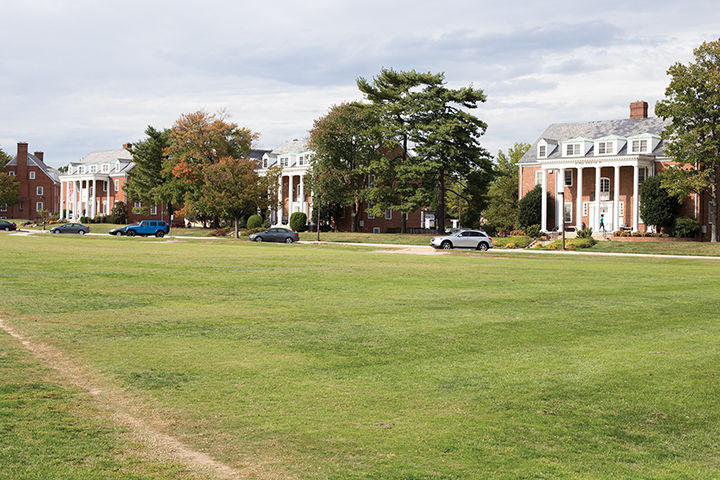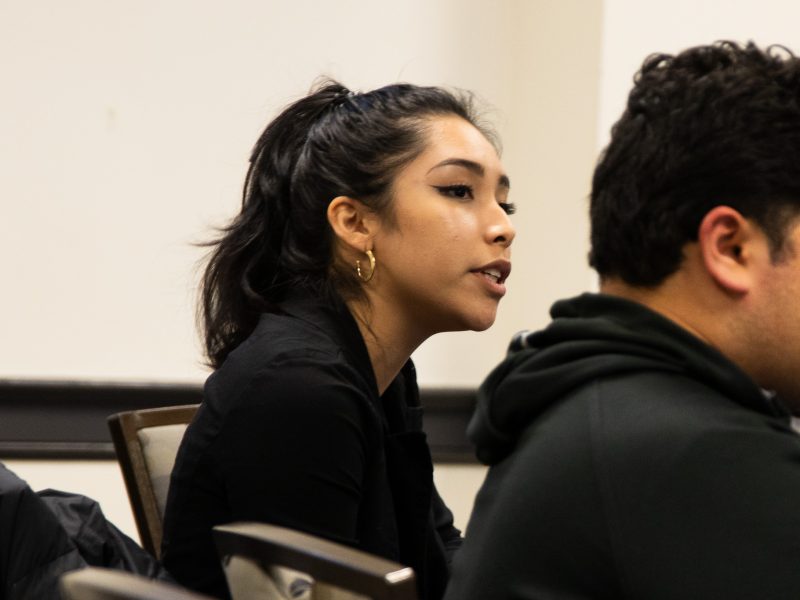As the Department of Fraternity and Sorority Life looks into a group housing option this summer for 16 culturally-based chapters at the University of Maryland, members within some of these chapters expressed how this could or could not be beneficial.
“We have been interested in providing housing for our culturally-based groups for years,” said Nathan Bunch, the department’s National Panhellenic Council and Multicultural Greek Council advisor.
The department will have a graduate assistant researching the group housing option for culturally-based fraternities and sororities over the summer, Bunch said. He continued by explaining that if a property that the department owns becomes available, such as a townhouse on the Graham Cracker or one of the houses on Fraternity Row, the department would like to put a few members from various culturally-based chapters in that space.
“The grad assistant will be comparing institutions … looking at other Big Ten schools and other schools in general that might provide housing,” he said, “but will also look into universities that have live-in learning communities that are Greek and culture based.”
As of right now, none of the culturally-based chapters on the campus have housing, said Corin Edwards, the department’s programing and advising associate director.
“There was a time on this campus where Iota Phi Theta, a historically black fraternity, used to have a house behind Fraternity Row, but it was small and only housed around six people,” she said. “Right now, our facilitates are just not built to house chapters of that size.”
Compared to Interfraternity Council and Panhellenic Association fraternities and sororities, which usually have more than 50 members, having fewer members makes it “hard to maintain because our retention isn’t as huge as mainstream fraternities,” said Fidel Martinez, a senior journalism major and a member of this university’s chapter of La Unidad Latina, which is under the umbrella of national fraternity Lambda Upsilon Lambda.
Culturally-based chapters usually don’t have more than 40 members consecutively, so it becomes hard for those chapters to sustain their housing, Edwards said. The estimate of current members within culturally-based chapters range from three members to 40 members, she said.
“To sustain at least 32 members year after year is a lot of people … it can be hard because you would then have to have everyone in the chapter live [in the house],” Edwards said.
Thirty-two is the minimum amount of members required in order for a chapter to sustain its housing.
These Multicultural Greek Council chapters, which are only established at this university, also often have a harder time financially than those with national organizations because they do not have the alumni funding that national organizations have, Bunch said.
“With housing there is an increase in dues … a lot more things to worry about,” said Hernan Romero, a junior kinesiology major and the current president of this university’s Omega Nu Eta chapter, which is also culturally-based.
However, having group housing could create more cohesion within the culturally-based chapters because they would be living together, Romero added.
Not everyone is convinced, however. Wanting to live in close proximity to many classes is one reason why some chapters feel that a group housing option isn’t feasible for them, said Diana Kim, the Multicultural Greek Council president and a member of this university’s chapter of Kappa Lambda Xi, a multicultural sorority.
“Undergrads want to live on campus like [South Campus] Commons and other housing close by to their classes. … It wasn’t a preference for us,” said Kim, a senior family science major.
Though having housing would be great for the Multicultural and NPHC chapters, not having a lot of members makes it harder for a house to seem realistic, Martinez said, adding that culturally-based chapters are more like “an intimate circle” than an organization.
Even though housing isn’t a top priority for her sorority, Kim said she still is very appreciative the department took the time to look into housing for the university’s culturally-based chapters.
“A lot of big differences between the bigger chapters and our chapters is that they have a house,” Kim said. “With the department wanting to add more of an equality between the different councils. … If we had more numbers, if more people were okay with living in this home together, it would be perfect.”
While the department wants to find a way for group housing to happen, Bunch said it also has to take into account each chapter’s rules.
“Some of our culturally-based organizations do not allow chapters to have housing on campus,” he said. “In my fraternity, Sigma Lambda Beta International Fraternity. … We have a housing policy that states that we cannot have a house on campus grounds.”
Looking to secure a place where the culturally-based groups — as well as IFC and PHA fraternities and sororities — can thrive is the ideal situation, Bunch said.
“We just have a belief that housed groups can tend to perform well … [there’s] more of a net in place for them to perform academically, structurally, organizationally,” he said. “For a cultural group it could an amazing means of recruitment and retention. Although this idea is centered for the culturally-based chapters on campus … if we could, we would like to expand the group housing idea to IFC and PHA as well.”



